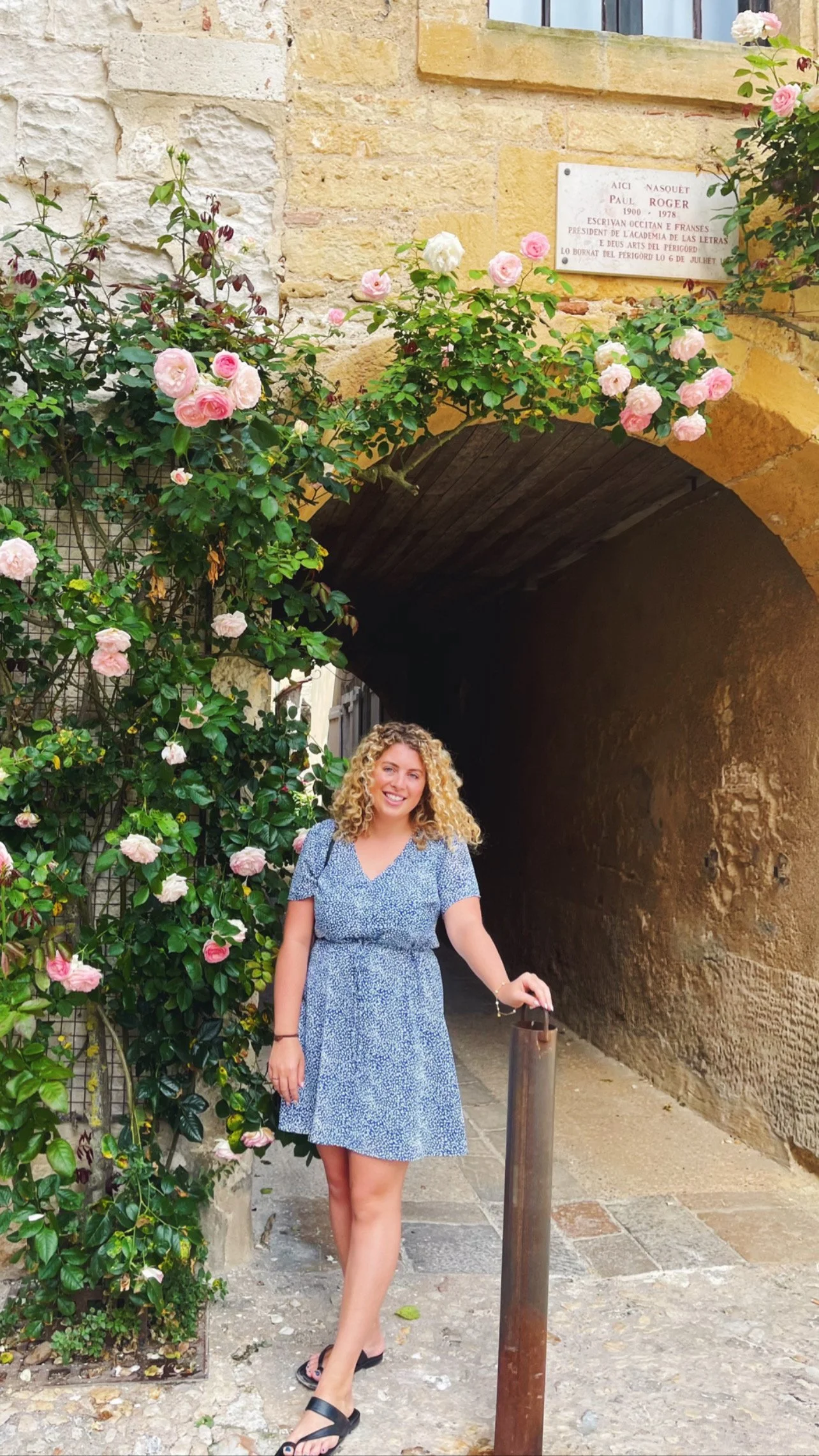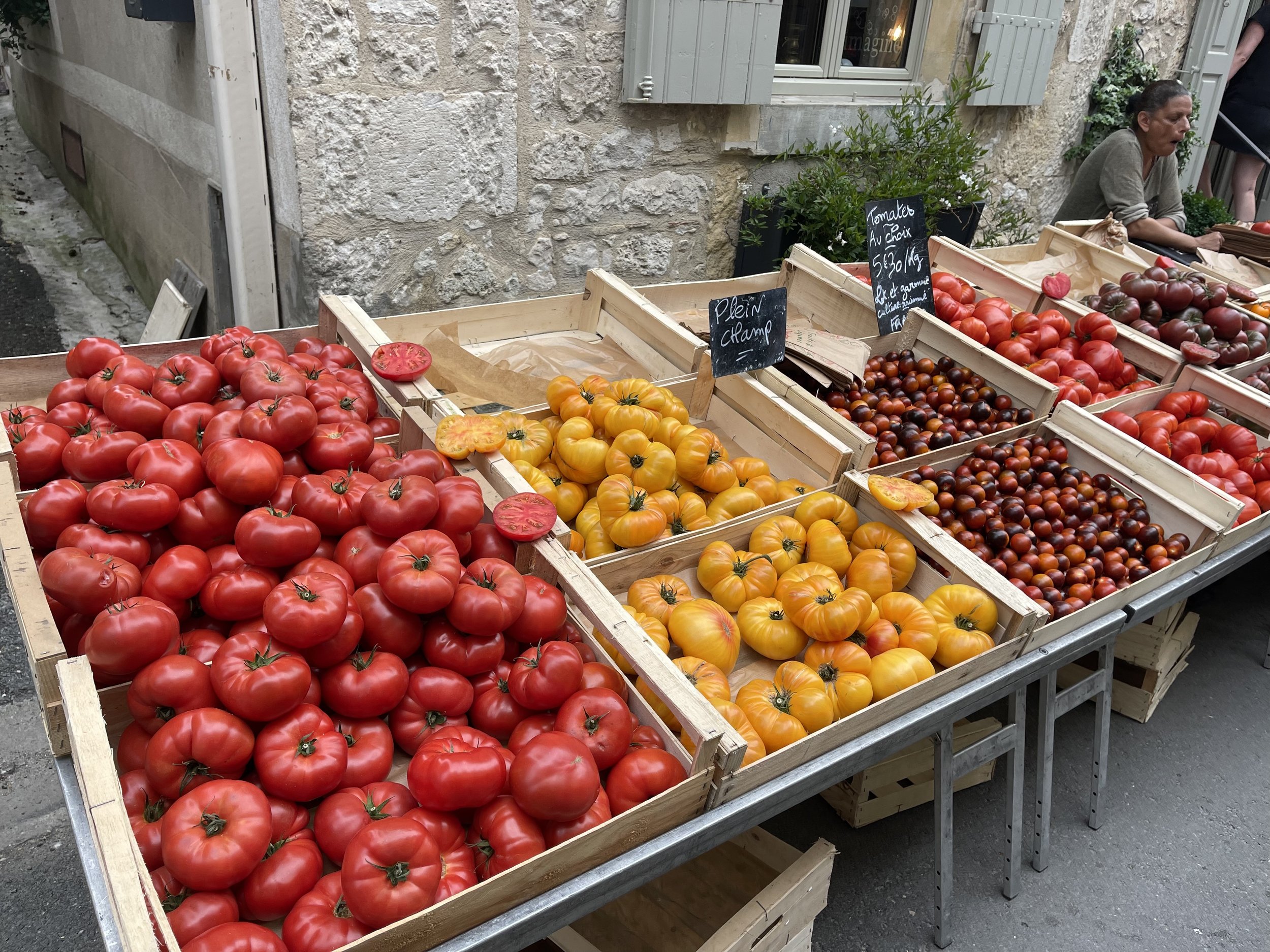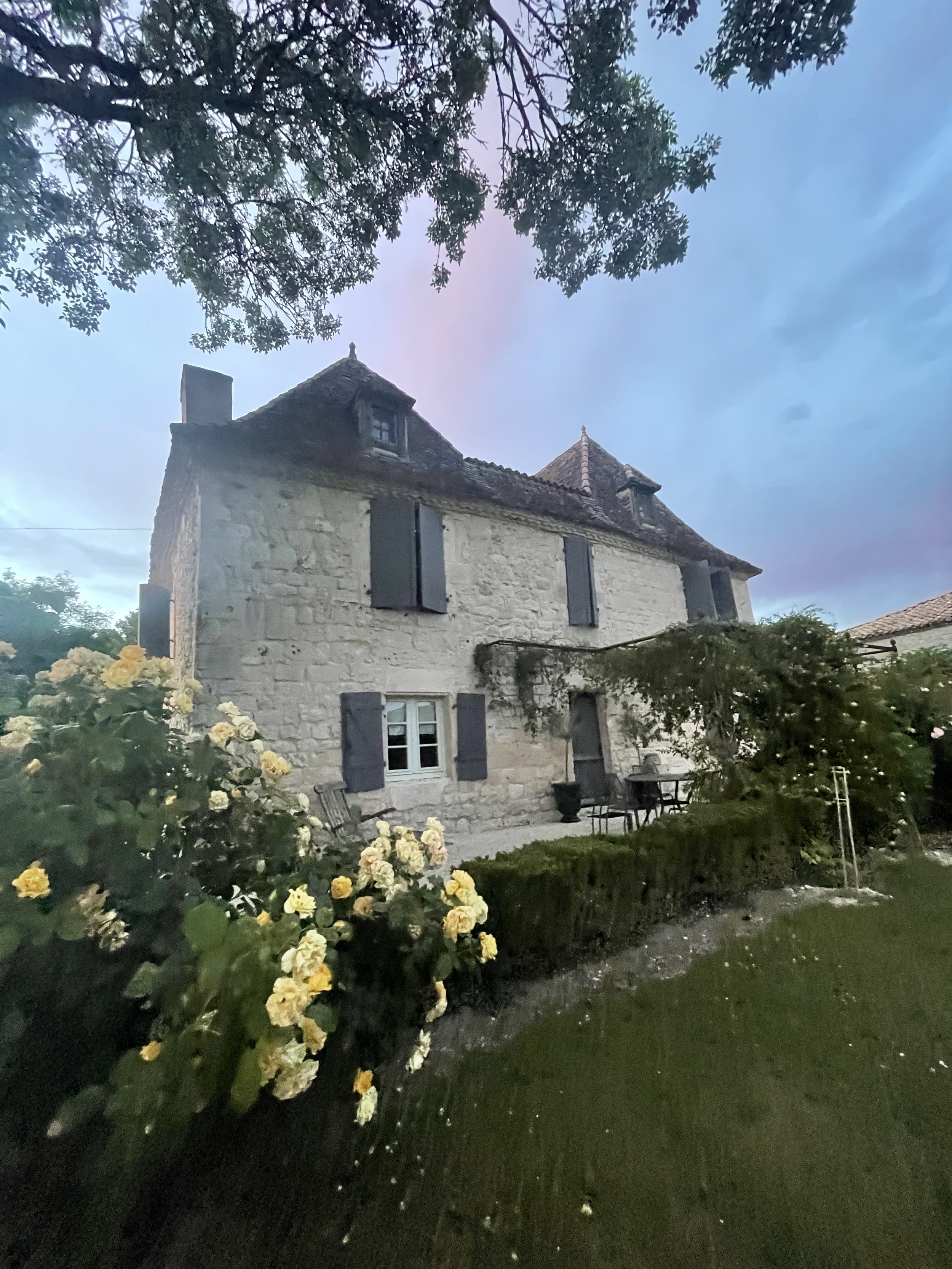We spent the morning in the Issigeac, a nearby village of roughly 700 people which dates back to Roman times. The Sunday market is a town-wide affair; the streets of half-timbered Medieval buildings are lined with stalls selling local honey and mead, heirloom tomatoes, chèvre, and wildflower bouquets. It could have been a scene out of Beauty and the Beast. With the exception of a few evening walks, this is the first time we’ve left Les Jouandis (CLA’s home base) since our arrival. I used this opportunity to reflect on the last week and all I’ve learned.
CLA shows us that physical surroundings should inspire music making. In small ways, we’ve each found a connection with the French way of living. We sleep with the windows open, welcoming the breeze and tolerating the rare bumblebee. We taste honeysuckles, wear roses in our hair, enjoy a morning stretch by the pool, and sneak bits of jambon to Minette, the adorable kitten who lives nearby, who unsurprisingly, has come to enjoy our company as much as we enjoy hers.
We’ve even learned the intimacies in the way sound travels throughout the chateau. The kitchen on the second floor is the best place to hear singers coaching in Glenn’s blanchisserie, while sounds from Hélène’s salon are clearest from the garden. This is how we have each come to know each other’s voice; not through performances, but in snippets and drafts. I was pleasantly surprised when a few singers in poetry class came down as they heard me coaching Berlioz’s setting of the Gautier poem that they were simultaneously studying.
I’ve also felt the joy of bringing together artists at different phases of their careers. Despite the program’s small size, singers and pianists in undergraduate, graduate, and post-grad training programs, at conservatories and universities alike, are represented here. On a more personal note, I’m feeling especially grateful for the opportunity to focus entirely on my craft without the distractions of college life.
The pace of life here is slow, but coachings and rehearsals are dense and fast-paced. We’re learning that the music of the French language cannot be separated from the notes and rhythms on the page. CLA puts this belief into action. Raphaël instructs the flow of the French language, reimagining what could be diction, learned by rote, into poetry coachings. He teaches introductory grammar, phonetic principles, and rhythmic nuances. Where Raphaël leaves off, Glenn begins, helping us optimize resonance within the constraints of each vowel. Finally, we work with Hélène and Gaspard, who bring our repertoire to life. They guide us as we analyze the subtext in our mélodie and bring our opera scenes and characters to the stage.
Finally, I’ve learned that summer festivals are most successful when they create intentional community. It’s no small feat to bring us (and our overlapping aria packages) together for a few weeks in an unfamiliar place. CLA sidesteps a competitive environment by emphasizing both the process of music-making and our time spent outside of rehearsal. We eat each meal together, family-style. It’s like a game of musical chairs between students and faculty, too. Over the course of the last week, feelings of formality have dissipated and we’ve begun relishing in the familiar and generous home we’ve made together.
I’m looking forward to the weeks to come and the inspiration that they will surely bring!




